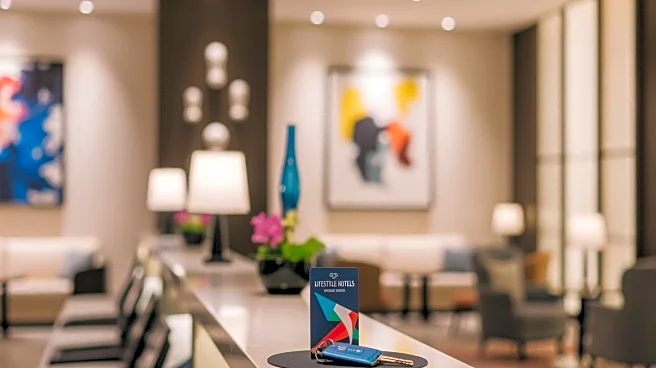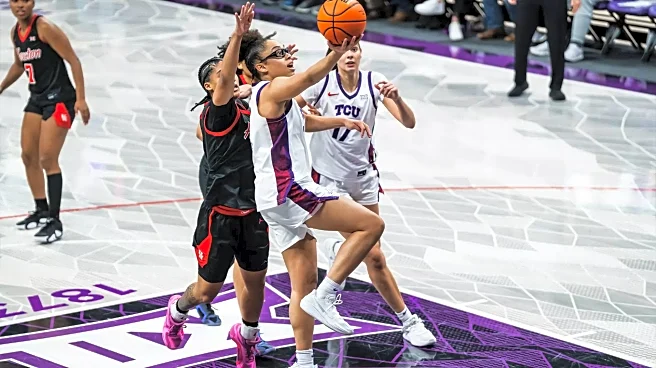What's Happening?
The lifestyle hotel sector in Asia is experiencing significant growth due to increasing demand from travelers seeking unique experiences. According to JLL's Global Hotel Investment Outlook 2025, lifestyle hotels
have seen a substantial increase in their share of new hotel rooms globally, with Asia showing strong growth. Lifestyle hotels, characterized by their distinctive environments and focus on art, music, fashion, and social interaction, are expanding rapidly. China leads the region in lifestyle hotel supply, followed by Southeast Asia. The expansion is fueled by investor interest and guest demand, with major hotel chains acquiring lifestyle brands such as NoMad, CitizenM, and The Standard.
Why It's Important?
The expansion of lifestyle hotels in Asia reflects a broader trend in the hospitality industry where travelers are increasingly seeking personalized and experience-driven accommodations. This shift has significant implications for the hotel industry, as traditional hotels may need to adapt to changing consumer preferences. The growth in lifestyle hotels also presents opportunities for investors and hotel chains to capitalize on this demand by acquiring and expanding unique hotel brands. This trend could lead to increased competition among hotel operators and potentially reshape the landscape of the hospitality industry in Asia and beyond.
What's Next?
Lifestyle hotels are expected to continue their expansion in Asia, driven by ongoing demand from travelers and strategic acquisitions by major hotel chains. As the market evolves, traditional hotels may need to innovate and offer more personalized experiences to remain competitive. The continued growth of lifestyle hotels could also lead to increased investment in the sector, with more international hotel chains seeking to acquire or develop lifestyle brands. This expansion may further influence travel patterns and consumer expectations in the hospitality industry.
Beyond the Headlines
The rise of lifestyle hotels highlights a cultural shift towards more immersive and experience-focused travel. This trend may encourage other sectors within the travel industry to innovate and offer unique experiences, potentially impacting tourism strategies and marketing approaches. Additionally, the emphasis on lifestyle and boutique hotels may influence urban development and tourism infrastructure in regions with high demand for such accommodations.










